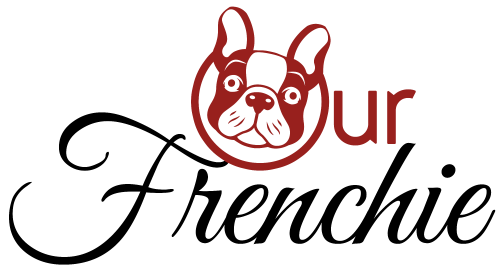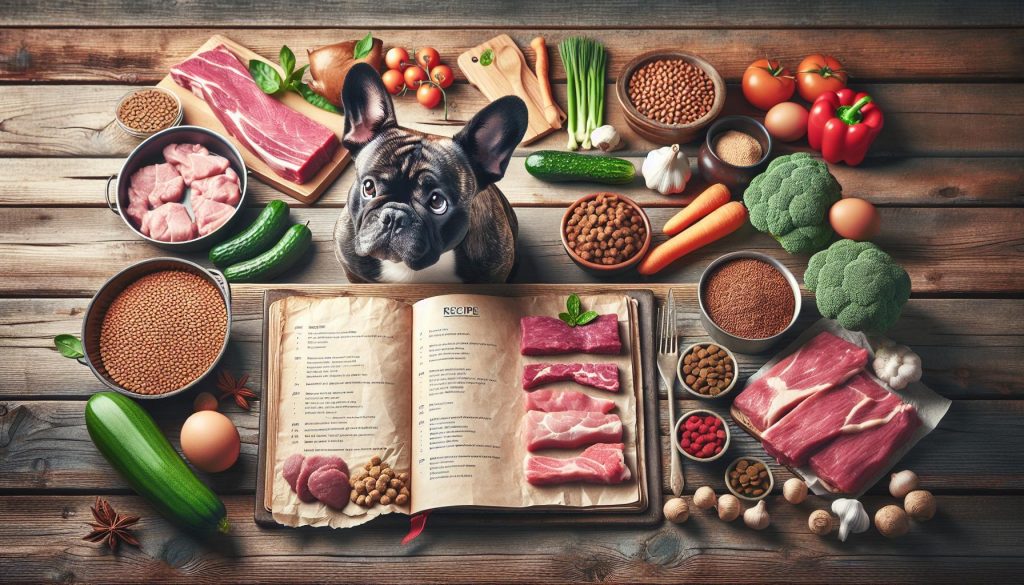About
Homemade Dog Food Recipes for French Bulldogs
Page Contents
French Bulldogs, with their charming personalities and distinctive looks, are beloved companions for many dog owners. Though, their unique dietary needs can sometimes be a challenge.Feeding them teh right nutrients is crucial for their health and well-being.Homemade dog food recipes offer a personalized approach to meet these needs, allowing you to control the quality and ingredients of your dog’s diet. In this article, we’ll explore a variety of nutritious and delicious recipes tailored specifically for French Bulldogs, ensuring they get the best care from their meals. Weather you’re looking to address specific dietary concerns or simply want to treat your furry friend to something special, these recipes are a great place to start.
Best Ingredients for French Bulldog Meals
Crafting the perfect meal for your French bulldog involves selecting ingredients that cater to their unique dietary needs. These adorable companions are known for their sensitive stomachs and potential food allergies, so it’s crucial to choose ingredients that are both nutritious and gentle on their digestive systems. Here are some of the best components to include in homemade dog food for French Bulldogs:
- Lean Proteins: Opt for high-quality proteins such as chicken, turkey, or fish. These sources are not only rich in essential amino acids but also easier to digest, reducing the risk of allergic reactions.
- Complex Carbohydrates: Sweet potatoes, brown rice, and quinoa are excellent options. They provide a sustained energy release and are less likely to cause spikes in blood sugar levels, making them ideal for maintaining a healthy weight.
- Healthy Fats: Incorporate sources like fish oil or flaxseed oil, which are rich in omega-3 fatty acids. These fats support skin health, reduce inflammation, and contribute to a shiny coat.
- Vegetables: Include a variety of vegetables such as carrots,peas,and spinach. These provide essential vitamins, minerals, and fiber, which are vital for overall health and digestion.
- Calcium and Phosphorus: Ensure a balanced intake with ingredients like ground eggshells or bone meal to support strong bones and teeth.
When preparing meals, always ensure that ingredients are cooked thoroughly and served in appropriate portions to meet your French Bulldog’s specific caloric needs. It’s also advisable to consult with a veterinarian to tailor recipes that address any specific health concerns your pet may have.
Balancing Nutrition for Your Frenchie
Ensuring a balanced diet for your French Bulldog involves understanding their unique nutritional needs. Frenchies are known for their playful energy and compact build,requiring a diet rich in high-quality proteins,healthy fats,and essential vitamins and minerals. **Proteins** from sources like chicken, turkey, or fish are vital for muscle growth and repair. **Healthy fats** such as omega-3 and omega-6 fatty acids, found in fish oil and flaxseed, support a shiny coat and healthy skin.
In addition to proteins and fats, French Bulldogs benefit from a variety of **vegetables** and **fruits** that provide necessary vitamins and antioxidants. Consider incorporating ingredients like sweet potatoes, carrots, and blueberries into their meals. These not only add flavor but also contribute to their overall well-being by boosting immune function and promoting healthy digestion.
- **Proteins**: Chicken, turkey, fish
- **Healthy Fats**: Fish oil, flaxseed
- **Vegetables**: Sweet potatoes, carrots
- **Fruits**: Blueberries, apples
It’s vital to consult with your veterinarian to tailor the diet to your Frenchie’s specific needs, considering factors like age, weight, and activity level. Avoid common allergens and always ensure that the portions are appropriate to prevent obesity, a common issue in the breed. A well-balanced homemade diet can lead to a healthier, happier Frenchie, full of life and ready to enjoy every moment with you.
Avoiding Common Allergens in Dog Food
When crafting meals for your French Bulldog, it’s essential to be mindful of common allergens that could effect their health. This breed is notably prone to food sensitivities, so identifying potential triggers is crucial. Some of the most frequent allergens in dog food include grains like wheat, corn, and soy, as well as proteins such as beef, chicken, and dairy products. To minimize the risk of allergic reactions, consider using novel protein sources like duck, lamb, or fish, and opt for grain-free recipes.
Incorporating a variety of fresh, whole ingredients can help maintain a balanced diet while avoiding allergens. Here are some safe and nutritious options:
- Sweet Potatoes: A great source of carbohydrates and fiber, sweet potatoes are gentle on the stomach and provide essential vitamins.
- Quinoa: This pseudo-grain is gluten-free and offers a complete protein profile, making it an excellent alternative to conventional grains.
- Green Vegetables: Spinach, kale, and broccoli are packed with vitamins and minerals, supporting overall health without triggering allergies.
Always introduce new ingredients gradually and monitor your dog for any adverse reactions.Consulting with a veterinarian before making significant dietary changes is also advisable to ensure your furry friend receives all necessary nutrients.
cooking Techniques for Homemade Dog Meals
Crafting meals for your French Bulldog at home can be a rewarding experience, ensuring your furry friend receives the best nutrition tailored to their needs. When preparing these meals, it’s essential to use appropriate cooking techniques that preserve the nutrients and flavors of the ingredients. Here are some methods to consider:
- Steaming: This gentle cooking method helps retain the vitamins and minerals in vegetables and proteins. Use a steamer basket over boiling water,and ensure ingredients are cooked until tender but not mushy.
- Slow Cooking: Ideal for breaking down tougher cuts of meat and enhancing flavors, slow cooking involves simmering ingredients over low heat for several hours. This technique is perfect for creating hearty stews and casseroles that your French Bulldog will love.
- Baking: Baking can be used for preparing treats or main meals. By cooking ingredients at a moderate temperature,you can achieve a balanced texture and taste. Consider baking a mix of lean meats, vegetables, and grains in a casserole dish for a wholesome meal.
Always remember to avoid using ingredients that are harmful to dogs, such as onions, garlic, and excessive salt. By mastering these techniques, you can ensure that your homemade dog meals are not only nutritious but also delicious for your beloved French Bulldog.
Portion Control for french Bulldogs
When crafting meals for your French Bulldog, understanding the right portion sizes is crucial to maintaining their health and preventing obesity. French Bulldogs are a compact breed with a tendency to gain weight easily, so it’s essential to tailor their diet to their unique needs. Typically,the caloric intake should be balanced with their activity level,age,and overall health condition.
Start by consulting with your veterinarian to determine the ideal daily caloric intake for your pup.Once you have that number, you can divide it into appropriate portions. A general guideline is to feed them twice a day, ensuring that each meal is nutritionally balanced and portioned correctly. keep in mind that the portion size should be adjusted as your dog ages, or if their activity level changes.
- **Monitor their weight regularly**: Regular weigh-ins can help you adjust portion sizes as needed.
- **Watch for signs of overfeeding**: Look out for excessive weight gain or lethargy, which may indicate overfeeding.
- **Consider using a kitchen scale**: This can help ensure accuracy in measuring food portions.
By paying close attention to portion control, you can help your French Bulldog maintain a healthy weight, ultimately contributing to a longer, happier life. Remember, a well-fed dog is not just about quantity but also about the quality of the ingredients used in their meals.
Storing Homemade Dog Food Safely
Ensuring the safety and freshness of homemade dog food is crucial for the health of your French Bulldog. Start by preparing the meals in clean, sanitized environments to prevent any contamination. Once prepared, allow the food to cool fully before transferring it into airtight containers. This prevents moisture build-up,which can lead to spoilage. Use BPA-free plastic or glass containers to maintain the food’s quality and prevent any harmful chemicals from leaching into the meals.
For optimal freshness, store the homemade dog food in the refrigerator for up to three days. If you’re making larger batches, consider freezing individual portions.**Freezing** not only extends the shelf life but also locks in nutrients. When ready to serve, thaw the food in the refrigerator overnight or use a microwave on a low setting, ensuring the food is evenly warmed. Always check the temperature before serving to avoid burning your dog’s mouth.
- Label each container with the planning date to keep track of freshness.
- Discard any food that shows signs of spoilage, such as off smells or mold.
- Keep a consistent rotation of meals to ensure older batches are used first.
By following these storage tips, you can ensure that your homemade dog food remains safe and nutritious, providing your French Bulldog with the best possible diet.
Transitioning to Homemade Dog Food
Transitioning your French Bulldog to homemade dog food can be a rewarding experience, but it requires careful planning to ensure a smooth and healthy change. Begin by gradually introducing the new food over a period of 7-10 days. Start by mixing a small portion of homemade food with their current diet, slowly increasing the homemade portion while decreasing the commercial food. This gradual transition helps prevent digestive upset and allows your dog to adjust to the new flavors and textures.
When crafting your homemade recipes, focus on creating a balanced diet that meets all of your French Bulldog’s nutritional needs. Essential components include:
- Proteins: Lean meats like chicken, turkey, or beef are excellent sources of protein. Fish such as salmon can also provide beneficial omega-3 fatty acids.
- Carbohydrates: Incorporate healthy grains like brown rice or quinoa for energy. Sweet potatoes are another great option, rich in fiber and vitamins.
- Vegetables: Add a variety of vegetables like carrots,peas,and spinach to supply essential vitamins and minerals. Ensure vegetables are cooked and chopped for easy digestion.
- Fats: Healthy fats are crucial for skin and coat health. Consider adding a small amount of olive oil or flaxseed oil.
Consult with your veterinarian before making significant changes to your dog’s diet. They can provide guidance on portion sizes and ensure that the homemade meals are nutritionally complete. Remember, patience and consistency are key to a successful transition, leading to a healthier and happier French Bulldog.
Key Takeaways
crafting homemade dog food for your French Bulldog not only ensures they receive optimal nutrition but also strengthens the bond you share. By tailoring meals to their unique needs, you can address specific dietary concerns and enhance their overall well-being. Remember to consult with your veterinarian before making any significant changes to their diet. With a little effort and creativity,you can provide delicious,healthy meals that keep your furry friend happy and thriving. Embrace the joy of cooking for your French Bulldog and watch them flourish with every bite.

